In between the before and after
Which sounds a lot like "the present", but is it supposed to be this hard?
(To answer my own question–yes, I’m pretty sure that is the foundational principle of Buddhism.)
Hi, friends.
Almost a year ago, after a traumatic event, my creativity seemed to dry up. I suddenly couldn’t write–the material I’d taken so much enjoyment in previously suddenly seemed too light and frivolous, and what I wanted to write about was too heavy. I stayed stuck in a stalemate for months, discarding draft after draft, unable to find words.
Eventually, I realised I just wasn’t ready to share. I was still processing, still digesting, still percolating.
There are things that feel terribly urgent to write about–I’ve learned that I can write urgent things about and for other people, which is why advocacy comes so easily to me; but when it’s about me, that sense of urgency demands my own attention, not the attention of others. It’s an urgency and discomfort I need to sit with for as long as it takes before it’s ready to be released.
For the past few weeks, I’ve written and shared urgently about India’s COVID crisis. This has been necessary and time-critical, and using my voice to raise awareness and support was a totally organic impulse to which I felt zero resistance.
While I have advocated on a systemic level, I’ve been affected by the crisis personally. The helplessness of dreading family members getting sick, and then watching it happen, is a trauma I haven’t yet processed because I’m still frozen in a state of paralysing terror and grief-on-standby while praying for it to pass.
I have seen friends lose parents and family members–I got one message just moments ago from a friend who lost her dad–and I can’t explain what it feels like to mourn for them while praying Please not mine.
All I can share right now is the gratitude for my family, their community, and my people for coming together in this crisis to support one another. My mother is a force who has managed to keep my seriously ill father alive while sick herself. One sister-cousin has almost single-handedly carried our entire family, as well as her community, through this crisis on her mighty shoulders. My parents have had meals provided for them three times a day by neighbours and friends.
Countless others have rallied round to provide their own resources for anyone in need–when my father urgently needed oxygen, my cousin’s business partner, who has multiple sclerosis, offered his own supply (we did not accept, of course). This selfless act was just one example of the way people have been stepping up for one another, which my mother wrote about this week.
My helplessness has been fueling my advocacy–when I feel there is nothing I can do, it comes easily to do anything at all to feel like I’m doing something. That’s how I’ve been trying to stay occupied, but the past few weeks have been a write-off in terms of focus and productivity.
To give you an idea of how incapacitated I am, I’m writing the entirety of this from my bed, where I’ve also had breakfast (brought to me) and lunch (takeout), getting up only to grab my laptop charger, pee, and answer the door.
You know in movie battle scenes when the archers pull back their arrows and the general tells them to hold until the right moment to fire? That’s what I’ve been doing with my feelings for the past three weeks.
What will happen when this is over? How will I feel? I have no idea, but I’m certain that something significant will have shifted. I’ve had a few cataclysmic “before and after” events that have altered the state of my being and/or the course of my life, and I feel like this will be another.
(It’s worth noting that these “before and after” events are usually related to serious illness or loss; basically, mortality. Is there a lesson here in taking my life more seriously before I’m reminded that we all die eventually? Probably. Am I going to unpack that now? Heck no.)
When I felt like I’d lost my voice this past year, what I realised eventually is that I couldn’t go back to what I’d been writing before because my story was different now. It took me a long time to recognise that I had gained a new voice; it wasn’t lost, it was just different.
In the same way, I’ve spent much of this past year trying to recapture a feeling of “okay”ness that I had before 2020. The pandemic and other cataclysmic events that arrived simultaneously knocked me off-centre, and I tried in vain to reorient to my previous bearings. It has taken me a long time to realise that “okay” for me now is at a very different set of coordinates to the ones I had before; I’m not lost, I’m just different.
Recently, I learned that someone I knew back in my 20s now works in my dream job. Her whole life, actually, looks exactly how I imagined my life would look, or hoped that it would: the career, the status, the marriage, the baby, the lifestyle. It sent me into a spiral–what was I doing with my life? How had she got there and I hadn’t? Why was I still here?
The answer was immediately pretty clear to me: well, she had went and got these things, and I hadn’t. I have lived my life intentionally enough that I can bedgrudgingly admit that this has not been a coincidence, or bad luck–if she is there and I am not, it’s because I made many choices along the way.
My spiral didn’t last long, because I do believe we’re exactly where we’re supposed to be. In the words of Sebene Selassie,
Sacred trust starts here: comprehending that given all the causes and conditions that led up to it, this moment could not be any other way.
But however consciously I chose, I did end up far away from the life I thought I would have, and was still surprised when I realised where I am. I’ve had to reckon with the reality that a lot of the choices I’ve made didn’t come from integrity or conviction, but from a not-readiness paired with extreme caution; I believe this is also known as “self-limiting beliefs”.
As I reflected on these choices, beliefs and my path, I happened upon this lovely essay by Sara Campbell about finding our way in life–this line, in particular, resonated with me: “I built my life tiptoeing around my dreams; never quite quashing them, but never giving them the attention they required either.”
In the following days, I was confronted with phantoms of many Things I Thought I Wanted. If it wasn’t directly via hard truths like The Girl Who Got My Life, it was in my subconscious, which played out alternate scenarios and dangled My Other Lives before me in my dreams.
As a result, I clinically examined my actual life versus the things I still think I want, and have gone into what is essentially a deep meditation: trying to get very very still so that the truths float to the surface. I’ve been asking questions and listening for answers in the stillness, and have been surprised by some big truths–but surprises aren’t really scary when there’s clarity.
For a week afterwards, my subconscious was happily at work, and my dreams kept dropping off gifts for me to unpack when I woke up. A big one was a question of Identity vs. Persona: I woke up a couple of days in a row thinking about who we are vs. how we want to be seen–and whether, often, we can even see the difference ourselves.
I believe social media plays a huge part in this dissonance. How many of us truly present our real, real selves on Instagram? There is me, and there is @meerabel; even though I like to think I’m fairly candid, of course the version you get of me online is a highly filtered one, though virtually indistinguishable to anyone else from my real self; I’m reminded of this when people call me Meerabel, thinking that’s actually my name.
Worse still, what is the likelihood that we begin to buy into that version of ourselves too? Can we see where we end and the handle begins? Can we distinguish our identities from our personas? Or do we, at some point, become the persona?
I’ve always felt compelled to reveal more, not less, of myself on social media because as well as pressure to be perfect, there is a contradictory pressure to be real (what is this, if not the female experience?). I don’t want to mislead anyone or play into presenting false, unrealistic standards that insidiously influence how we also end up presenting in real life.
“Authenticity” and “vulnerability” are buzz words we’re beaten over the head with, and there’s an absurdly oxymoronic pressure to conform to these ideals.
Then one day, a couple of months ago, I read this:
When asked how we will know when the internet is becoming conscious, [neuroscientist, Christof] Koch replied that the surest sign will be when “it displays independent behavior.” It’s hard to imagine what exactly this might look like. But considering that this process will also involve the waning of human consciousness, you might look inward, at the state of your own psyche.
The early stages of this process will likely be subtle. You might feel a bit scattered, your attention pulled in multiple directions, such that you begin to suspect that the philosophers are right, that the unified self is an illusion. You may occasionally succumb to the delusion that everyone you know sounds the same, as though their individual minds, filtered through the familiar syntax of tweets and memes, have fused into a single voice. You might find yourself engaging in behaviors that are not in your self-interest, mechanically following the dictate to share and spread personal information, even though you know the real beneficiary is not you or your friends, but the system itself.
The great merging, when it comes, might feel—and I confess I find this most probable—like nothing at all. There will be no explosion, no heavenly trumpet, just that strange peace that is known to overcome tourists standing in Times Square, or walking the Las Vegas strip, a surrender to overstimulation that is not unlike the numbness that sets in after hours of scrolling and clicking. In such moments, the noise is so total it becomes indistinguishable from silence, and even there, amidst the crowd, it is possible to experience a holy solitude, as though you are standing all alone, in the center of a great cathedral.
(Meghan O'Gieblyn, Wired, 2020)
Am I the only one who shit themselves when they read that? To me, it’s terrifying because it’s familiar. I’ve experienced countless moments of resurfacing from my phone and having no idea how long I was in there–or, now I think, perhaps, it was in me–or what I was doing.
I’ve felt the osmosis of internet and self, the gradual merging that’s described here. The feeling I most associate with protracted period of social media use is a disconnection from myself; I feel less lucid, conscious, and in control of myself.
After reading that, I took a long break from social media (only Instagram–I already deleted Twitter last year, and my Facebook is virtually defunct). Predictably, I immediately felt better. That was when I started my newsletter; if I must be vulnerable and authentic, I prefer to do it now only for an audience who opts in for a more meaningful exchange.
Is my personal information here safer than it is on social media? I feel it would be naïve to think so–but it does feel less like I’m plugging in data points onto a grid designed to mine my identity and emulate me in sinister ways that increasingly feel like the plot of the movie Annihilation (I’m not usually into sci-fi but I do recommend this).
I’ve got back on Instagram lately for advocacy, and that’s solely what I’m going to use it for from now on–if I must share anything about me that becomes part of an algorithm, I’d like it to be helpful in some way.
Things that helped this week
Podcasts
I’ve found it really comforting to listen to podcasts lately. I can’t go wrong with Oprah’s Super Soul podcasts, and my favourites lately were Martha Beck talking about integrity (“When you lose something, what breaks is what isn’t true for you; let that fall and to know that the shattering of self is just a layer of ego”) and Sharon Stone talking about trauma, death, generational healing, and female identity (this was really, really good).
I'm a huge fan of men talking about their mental health, and this extremely candid conversation between Dax Shepherd and Prince Harry was particularly wonderful. Nothing was off the table: depression, addiction, trauma, abuse, racism–I only wish the episode had been several hours longer.
Community
After thinking about it since it launched last year, I finally became a member of Ethel’s Club, an online social and wellness space for people of colour. One of the first spaces I joined was an AAPI healing circle (which they let me join even though I’m not American) where we held space for the different racial and cultural traumas affecting those present, from India’s COVID crisis to the appalling rise in hate crimes against Asian Americans. If you’re BIPOC, I highly recommend checking out the community–and they’ve just announced they’re becoming a free platform in June.
Frivolity
I took myself for a long-overdue mani last week and asked them to paint love hearts on my nail tips. It’s a small thing, but it makes me smile every time I look down at my hands. I’m really curious to try out some of the cute designs from this stick-on nail polish.
Not-coffee
I’ve been drinking chicory coffee as a caffeine-free substitute–it’s delicious, has great health benefits, and tastes close enough to coffee that I can make-believe it is (it makes a v yummy latte). It’s commonly used in South India (typically blended with coffee), so it’s also made me feel closer to home.
Lip balm
Anybody who spends a lot of time with me knows that about once an hour, I’ll start rummaging in my bag or wander from room to room looking for my lip balm. This is only one that really works for me, and I just found out they also have a Manuka honey-infused one which is my new obsession–it smells divine, is even bigger than the original one, and costs the same. They can just take all my money.
Multilingual children
I live for calls with my bilingual niece and nephew–being a bilingual kid myself, I can attest to it being far easier to learn a language as a child than as an adult. I was reminded of this today when my boyfriend’s little sister, age five, called him for English hacks so she could talk to me when I visit them this week.
This was adorable and also mortifying, because the reality is she will probably pick up English faster than I will learn to speak German (which was evidenced on the phone as she parroted one phrase after another in English).
It made me think of these books, which I’d like to get for all the multilingual kids in my life–I think they’re an amazing idea and I can’t wait for them to be on the market (they’re on Kickstarter right now).
Also, it’s WOC-owned and the illustrator is a female friend, so it’s a great women-fronted business to support.
Things that did not help this week
This is not a usual category but I feel compelled to add it this week after another visit to & Other Stories. I have been to multiple & Other Stories stores in multiple countries over many years, and not once have I ever walked out of their dressing rooms not feeling absolutely garbage about myself. Their lighting! The 360 mirrors! My ass!! 😭 I’ve asked around my friends to a unanimous consensus, so I’m convinced it must be a strategy–but why?? How is this good for business?? The mind boggles :(
Cats that helped this week
There have been lots of extra snaxx for these two lately, as they have been working so hard to be extra cute and very very helpful while I’ve been down.
It rained a lot this week, but we wondered if Olive would like to go outside anyway.
She did not.
The thing about cats is they’ll make themselves comfy in any random place, often where you don’t see them. If you can’t find them, look for them at foot level or above eye level.
Lots of rain meant lots of snoozes.
Zzz.
Speaking of snoozes, I finally got out of bed. I did a yoga practice, showered, and now it’s time to go to bed again. Honestly, I feel very accomplished.
This week, I’ll be getting my first vaccine–which I’m traveling five hours for because I have no idea when I can get it in Berlin, and my main objective at this point is to get to India as soon as I’m allowed to.
Something is troubling me (aside from the many other things that are also troubling me): Today, the BBC (who have been doing some really shoddy reporting recently–see the asinine lines of questioning here and here) used the term “the Indian variant” to refer to the B.1.617 variant.
In response, the WHO stipulated that “WHO does not identify viruses or variants with names of countries they are first reported from. We refer to them by their scientific names and request all to do the same for consistency.”


I have an ask: Please be mindful of the language you use. It isn’t a coincidence that there’s been a 200% rise in anti-Asian hate crimes in the US, since a high-profile racist gave the virus a racist name. It might seem innocuous, but these racialised labels are loaded and can have very serious repurcussions.


Meanwhile, Berlin is tentatively opening back up–it’s too early to feel safe, but it’s nice to have a sign of things being better.
Have a beautiful start to the week, folks.
Peace,

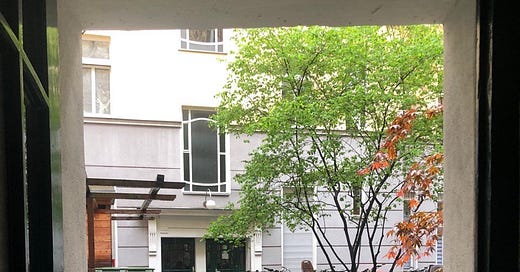


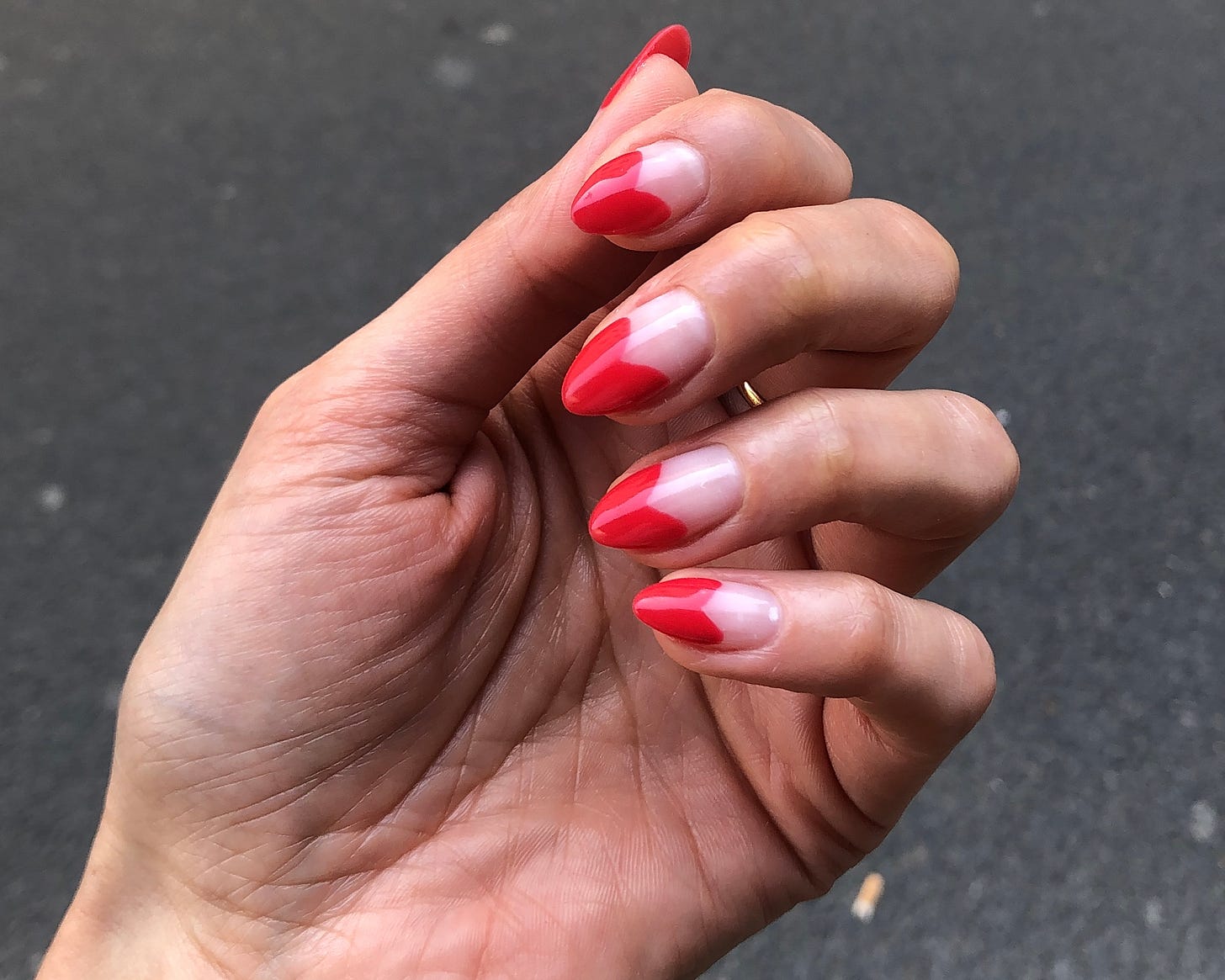


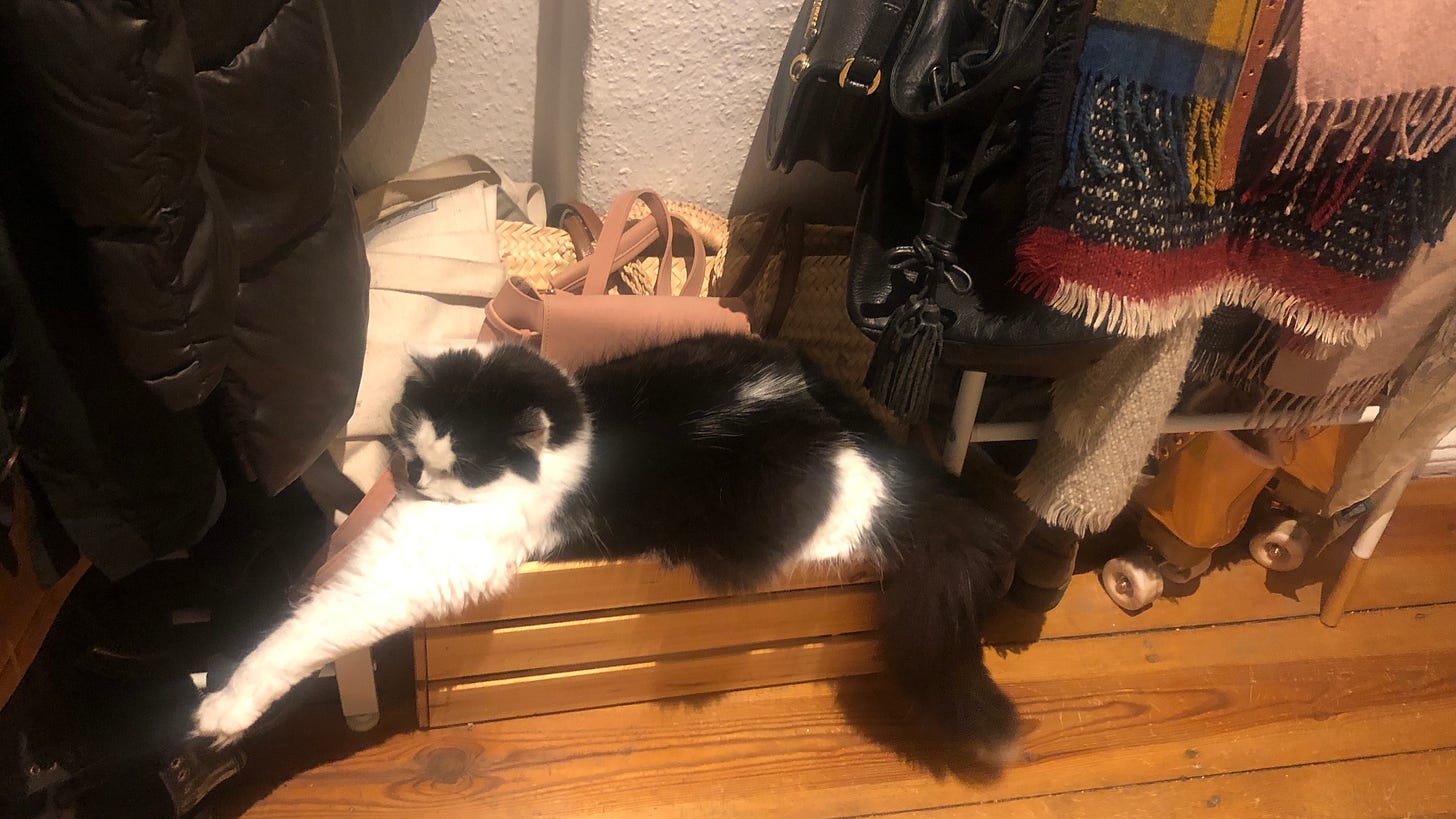
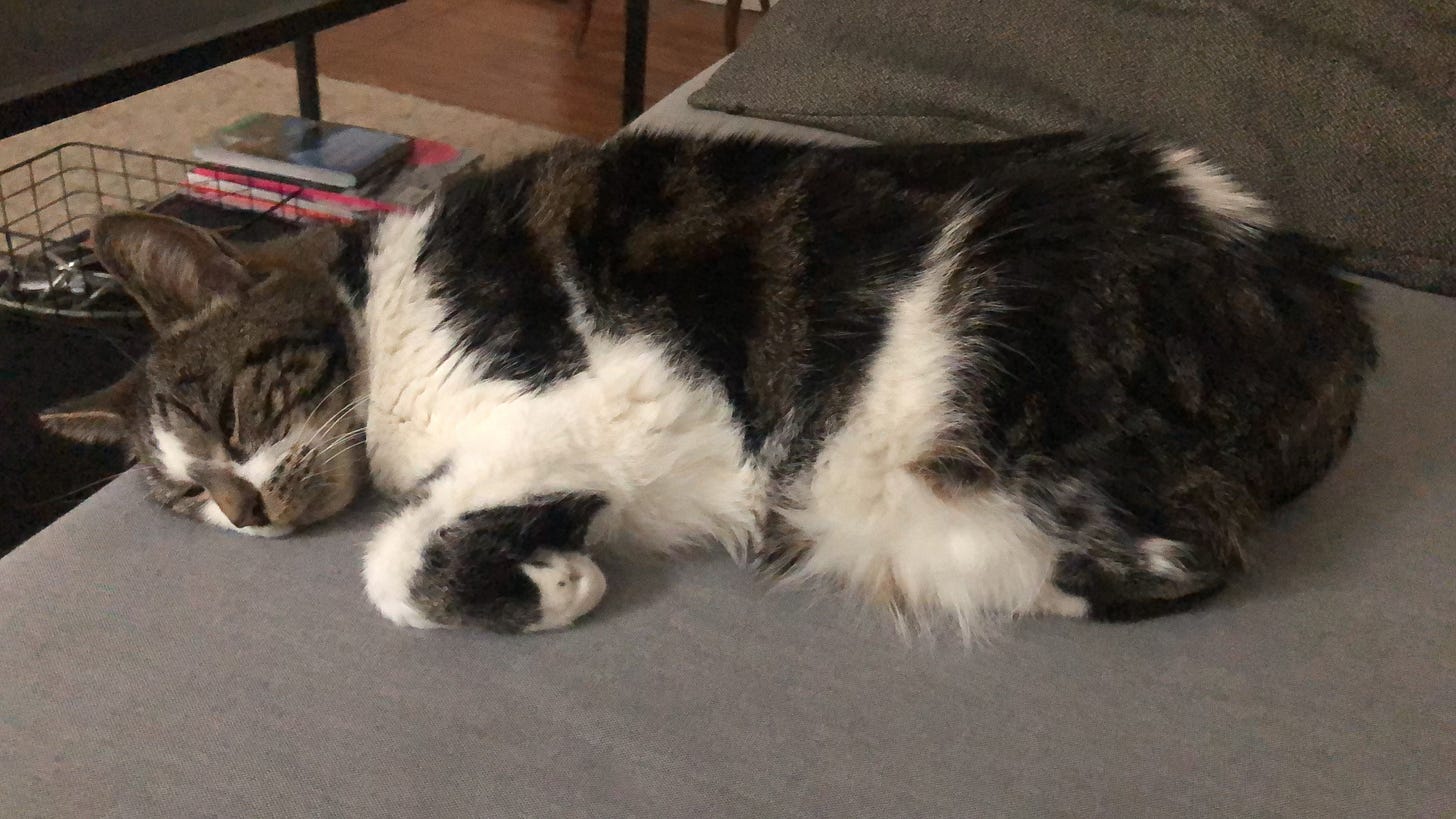
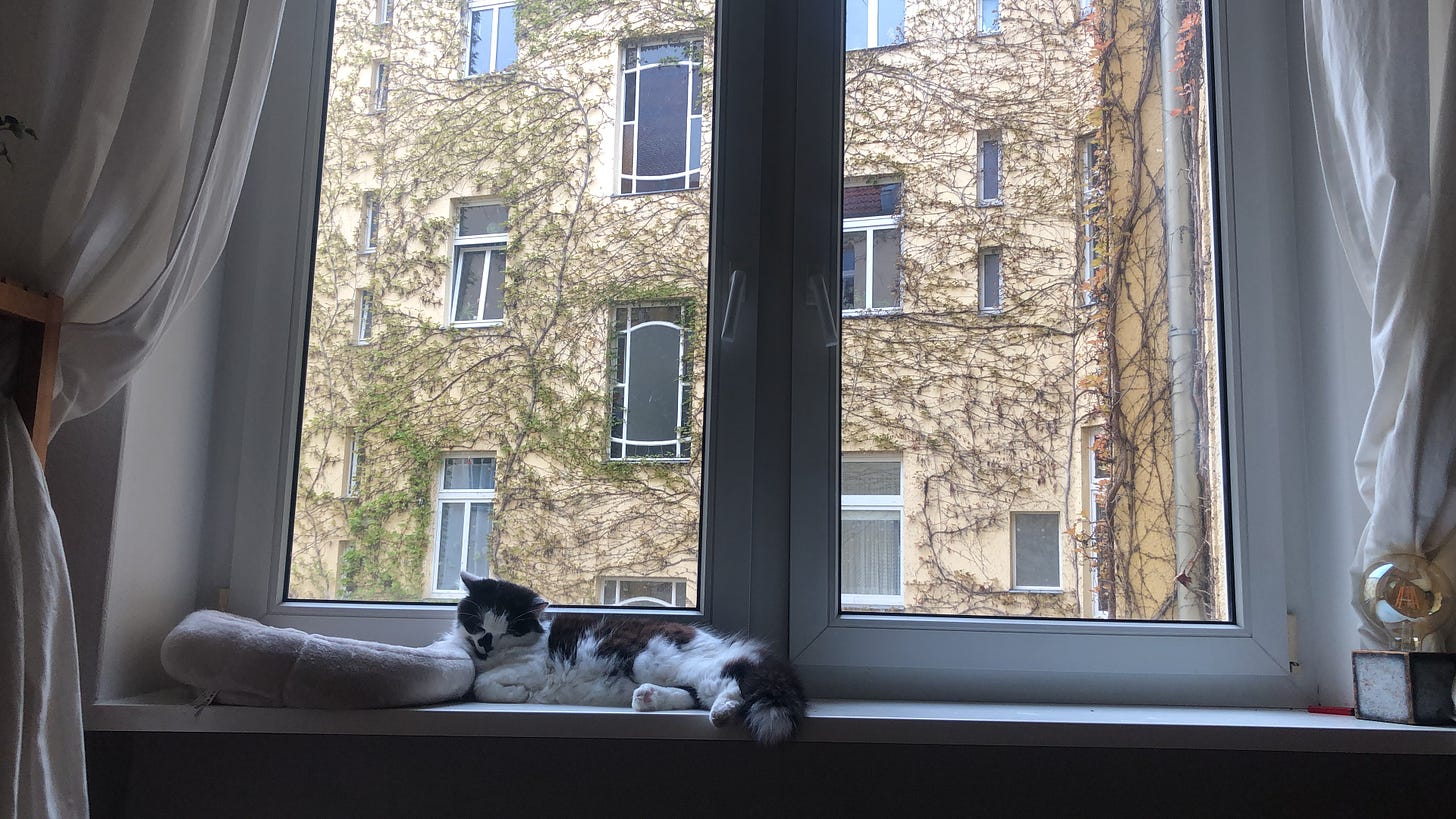

Love reading your authentic straight-from-the heart posts.